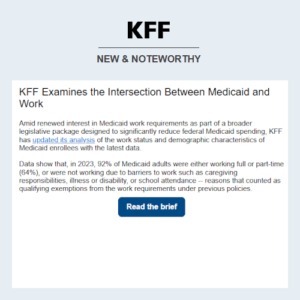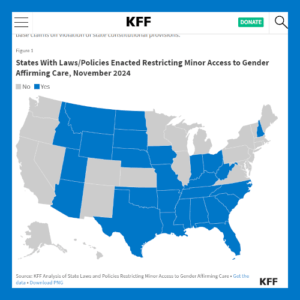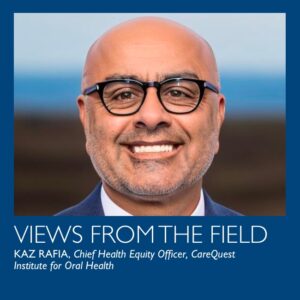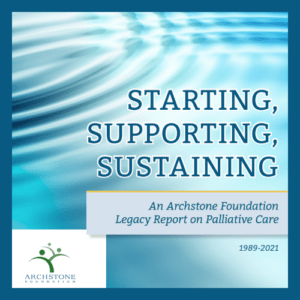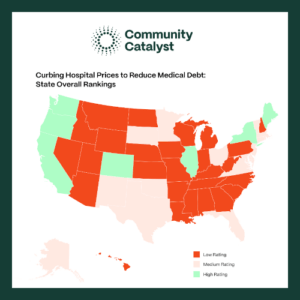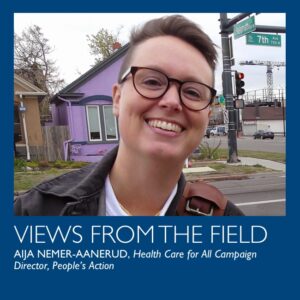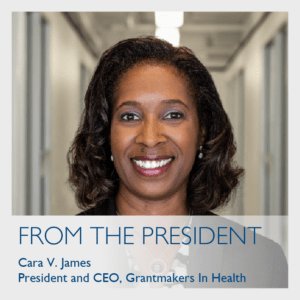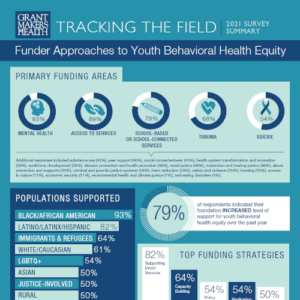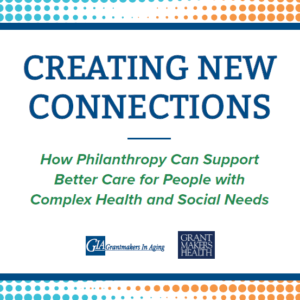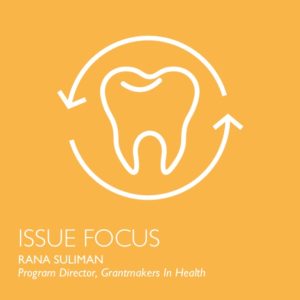Featured Resources
Data Show That The Majority of Adult Medicaid Enrollees are Working
Amid renewed interest in Medicaid work requirements as part of a broader legislative package designed to significantly reduce federal Medicaid spending, KFF has updated its analysis of the work status and demographic characteristics of Medicaid enrollees with the latest data.
Youth Access to Gender Affirming Care at the Supreme Court: What to Know
Ahead of December 4 arguments in a Supreme Court case (U.S. v. Skrmetti) challenging the constitutionality of Tennessee restrictions for gender affirming care for minors, KFF explores the background of the case and potential rulings.
Explore Access and Quality Topics
Latest Resources
REACH Healthcare Foundation and United Methodist Health Ministry Fund: May 2025
The United Methodist Health Ministry Fund and REACH Healthcare Foundation recently partnered with experts from Manatt Health to shed light on the potential impacts of $880 billion in cuts to the Medicaid program on Kansas.
Lucile Packard Foundation for Children’s Health: May 2025
The Lucile Packard Foundation for Children’s Health released a report titled “No Place to Hide: Children Will be Hurt by Medicaid Cuts” that outlines the federal proposals of Medicaid funding reductions and explains the implications of those proposals on children and families.
Blue Cross Blue Shield of Massachusetts Foundation: April 2025
The Blue Cross Blue Shield of Massachusetts Foundation released a chart pack that describes the potential threats to subsidized health insurance coverage and financing in Massachusetts under the new federal administration.
Episcopal Health Foundation: March 2025
Almost two thirds of Texans say they skipped or postponed some form of health care in the past year because of cost, while major health concerns like diabetes and obesity continue to grow. Those are just a few of the results from the annual Episcopal Health Foundation (EHF) statewide poll on health care access and affordability in Texas.
Publications and Reports
Creating New Connections: How Philanthropy Can Support Better Care for People with Complex Health and Social Needs
By presenting a range of approaches, large and small, this report can assist funders of all types and sizes to view their work through the lens of complex care.

